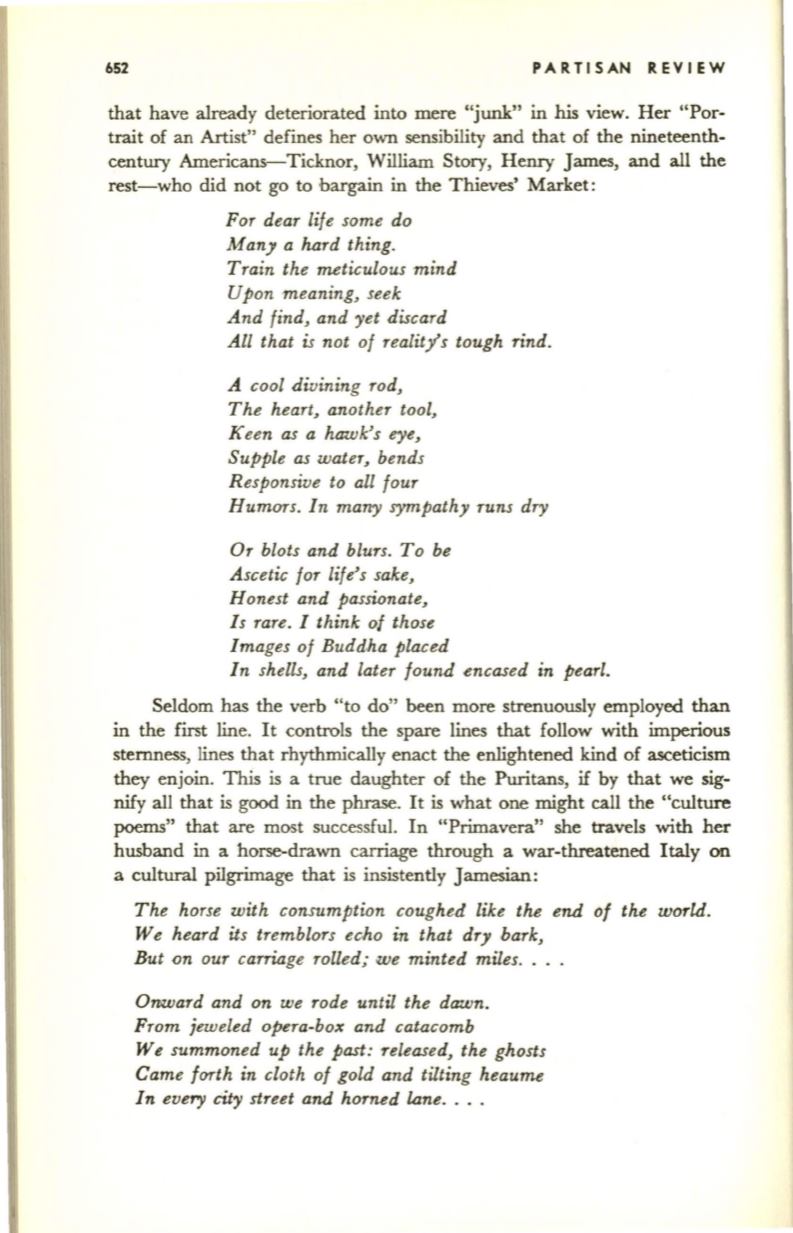
652
PAR TI
S AN
REV lEW
that have already deteriorated into mere "junk" in his view. Her "Por–
trait of an Artist" defines her own sensibility and that of the nineteenth–
century Americans-Ticknor, William Story, Henry James, and all the
rest-who did not go to bargain in the Thieves' Market:
For dear life some do
Many a hard thing.
Train the meticulous mind
Upon meaning, seek
And find, and yet discard
All that is not of realitjs tough rind.
A cool divining rod,
The heart, another tool,
Keen as a hawk's eye,
Supple as water, bends
Responsive to all four
Humors. In many sympathy runs dry
Or blots and blurs. To be
Ascetic for life's sake,
Honest and passionate,
Is rare. I think
0/
those
Images of Buddha placed
In shells, and later found encased in pearl.
Seldom has the verb "to do" been more strenuously employed than
in the first line. It controls the spare lines that follow with imperious
sternness, lines that rhythmically enact the enlightened kind of asceticism
they enjoin. This is a true daughter of the Puritans,
if
by that we sig–
nifyall that
is
good in the phrase. It
is
what one might call the "culture
poems"
that are most successful. In "Primavera" she travels with her
husband
in
a horse-drawn carriage through a war-threatened Italy on
a cultural pilgrimage that is insistently Jamesian:
The horse with consumption coughed like the end of the world.
We heard its tremblors ec.ho in that dry bark,
But on our carriage rolled; we minted miles.
Onward and on we rode until the dawn.
From jeweled opera-box and catacomb
We summoned up the past: released, the ghosts
Came forth in cloth of gold and tilting heaume
In every city street and horned lane.
...


